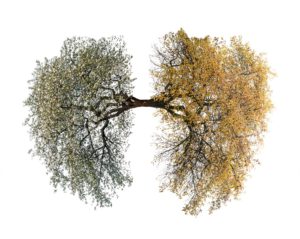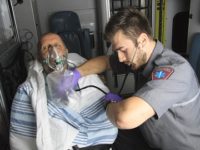
Physiologists are medical experts that deal with the human body and effects of processes and exposures.
What Does a Physiologist Do?
Physiology is a very broad field. Qualified physiologists may work in academia or in practices, much like most other medical qualifications. Simply, they study the anatomy of the human body. They are interested in how organs and systems work together and what effects outside agents have on the human body. They work in almost any setting, but usually in labs or in medical teams, sometimes alongside EMTs and disaster response personnel.
Our national and state parts are open spaces often with natural hazards everywhere. In the environmental field, physiologists study and treat the effects of these natural processes. Animal bites, and plant venom and poisons are all dangers of the natural world against which we may need protection or treatment. They will also work at the sites of nuclear disasters and other sites where decontamination is taking place, treating the injured.
They may also work in labs, studying data and statistics related to exposure to certain agents. They work to identify materials and the spread of symptoms, especially in cases where an agent requires identification. Others may work in labs as research assistants or lab technicians.
Where Does a Physiologist Work?
Considered a type of medical scientists, some 34% (that's around one third) work in R&D in physical, engineering and life sciences. Individuals working in this area typically operate in labs. They may develop treatments for natural agents (antidotes, vaccines or other preventive measures) or carry out testing of these substances.
Some 27%, that's just over one quarter, work in education. They will work as lecturers and researchers in college and university labs or in practice - this for our high schools too. Medical schools, specialist units are also inclusive, and they could work in practice or in labs.
15% or just under one sixth of qualified physiologists work in hospitals around the country. They will also work in practice direct with patients, or in labs conducting studies and research. Similarly, 4% work in medical diagnostics.
Their knowledge of human physiology and reaction to agents such as chemical spills, cold and heat exposure, and animal and plant venom means there is also demand for physiologists in pharmaceutical development. Around 6%, that is one in every sixteen work in medical R&D for drugs.
What Is the Average Physiologist Salary?
The median salary physiologists, who fall under the BLS category of medical scientists, was $91,510 as of May 2020. At the top end of the scale, those with the most experience in the right roles earned in excess of $164,650. The lower end of the scale came in at $50,240. The top paying industry was pharmaceuticals, with a median salary of $107,270, followed by R&D with a median salary of $99,840.*
Physiology Jobs & Job Description
Physiologists work in a variety of fields and settings, including as academics, teachers, medical scientists, medical researchers, and medical diagnostics or in pharmaceutical development. Given the wide range of applicable professions, physiologist's job descriptions can vary significantly. Typical job duties for physiologists at the beginning of their careers may include:
- Monitor medical patients during exercise or cardiopulmonary diagnostic testing, monitor their vital signs and record observations and deliver those findings to physicians
- Operate and maintain medical devices and instruments used to perform cardiopulmonary exercise stress tests
- Teach courses on anatomy, physiology or laboratory courses at an undergraduate or graduate level
- Conduct experiments in a laboratory setting and deliver test results to supervising physician or physiologist
- Conduct pharmaceutical research projects under the direction of a supervisor
As a physiologist gains work experience, he or she may take on more of a leadership role in his or her own field. In addition to conducting research and collecting results, a more senior physiologist would also do the following:
- Establish research laboratory and ensure all laboratory procedures are being followed
- Act as a research project leader, including designing projects, analyzing findings, developing clear and compelling reports and presenting those findings to internal and external audiences
- Supervise applicable laboratory staff and monitor progress of patients or study participants
What Is the Job Demand for Physiologists?
There will always be a demand for medical scientists in practice and in research. The physiology student should not have great difficulty finding relevant employment in line with their skills and experiences. Demand over the next decade is expected to grow some 17% between 2020 and 2030. This is much faster than the average for all occupations.* Some growth may be in the research and development area for new treatments, especially into diseases common to old age.
What Are the Education Requirements to Become a Physiologist?
High school students should focus on the core sciences and aim to study a medical degree. Typically, you will require math, chemistry and biology as standard. Those wishing to enter a career as a researcher or research assistant will certainly need math and develop aptitude and understanding of statistics.
Undergraduate students should ideally focus on physical sciences as a major; medical options if these are available at the college of choice, are preferable. Math should continue to be a focus during the course of your studies, especially if you prefer a career as a lab researcher. Bachelor degrees are suited to research assistant jobs or lab analysis. Those who wish to work in the field should study available medical qualifications. There are some options to study Physiology as a MA/MSc, but these are few. Masters will be required for project management in lab work whereas license to treat patients may require qualifications along the lines of those that paramedics or nurses take in order to practice.
Doctorates are required for advanced research and academic roles, and for teaching in universities. Private industry will often hire physiologists as part of pharmaceutical research teams, for example.
Physiology - Related Degrees
What Kind Of Societies and Professional Organizations Do Physiologists Have?
Physiology is a broad area with professionals in nearly every field in the USA.
- American Society of Exercise Physiologists: Exercise physiology is one of the most popular career choices. This organization aids the professional network share ideas and advance quality standards across the US
- American Physiological Society: Publishing a number of prestigious journals and offering awards for excellence in the field, APS promotes education and research in the public eye and the professional community
- Human Anatomy and Physiological Society: Their main goal is to promote teaching and research standards amongst their members. Although a global body, the majority of their members reside in the USA and Canada
*2020 US Bureau of Labor Statistics salary figures and job growth projections for medical scientists reflect national data not school-specific information. Conditions in your area may vary. Data accessed September 2021.





